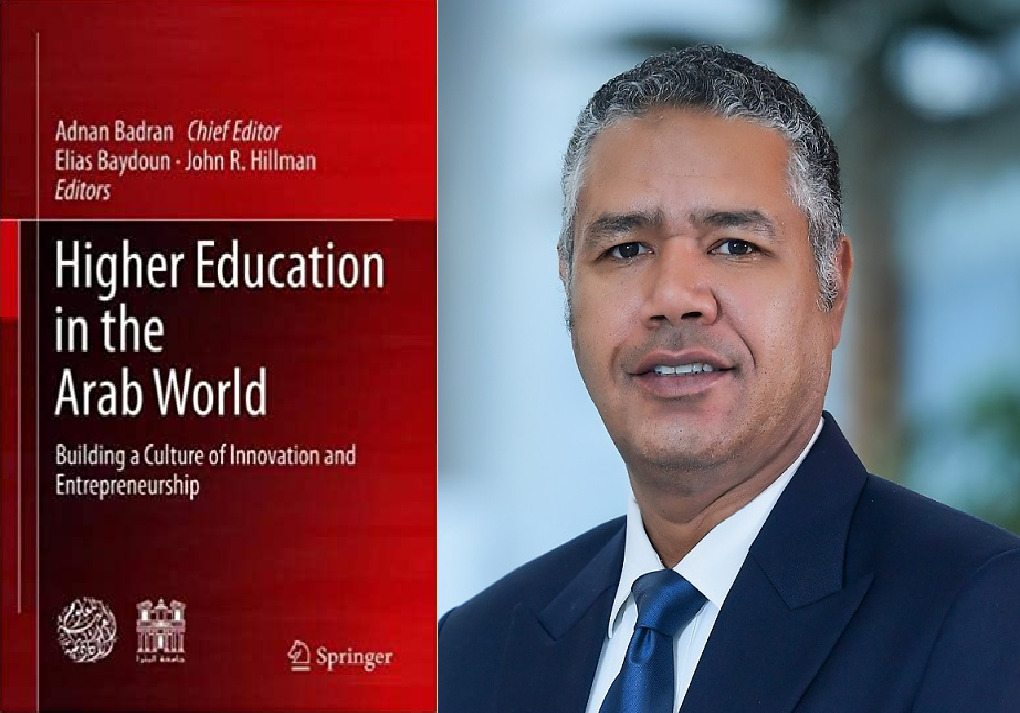
Dr. Sami Bashir, Director of Technology Management and Innovation at Khalifa University, has contributed a chapter on the role of technology transfer in Arab universities in a new book titled Higher Education in the Arab World: Building a Culture of Innovation & Entrepreneurship.
The 17-chapter book is being published by Springer, one of the leading international science and technology publishers, and will be available in bookstores in May.
According to the book’s synopsis (as published on Springer’s website here), “it offers the first major account of innovation and entrepreneurship in the Arab higher-education sector. It provides an overview of the current situation and advances reasons for the under-performance of Arab universities in international ranking tables. It offers specific proposals for upgrading curricula and assessment procedures and suggestions for providing an environment that fosters innovation and entrepreneurial behavior.”
The book’s editors include Dr. Adnan Badran, Chancellor of the University of Petra, Dr. Elias Baydoun, Professor of Biology at American University of Beirut, and Dr. John Hillman, Advisor to the Arab Academy of Sciences and Former Director and Chief Executive of the Scottish Crop Research Institute (SCRI). They identified the need to improve technology transfer capabilities in Arab universities as an important way to build the region’s knowledge economy and accelerate innovation and an entrepreneurial ecosystem.
As the Director of KU’s Technology Management & Innovation Office, Dr. Bashir was invited to contribute the chapter titled “Imperatives to Achieve a Successful Technology-Transfer Model: A Perspective from the Arab World.”
In it, Dr. Bashir acknowledges the increasing emphasis the Arab world is placing on the need to transform university research outputs into technologies that can benefit society. He discusses the importance of identifying an effective technology-transfer model, as intellectual property can be pivotal to building open innovation, industry/university research partnerships and collaboration that can support the development of innovations throughout the Arab world, which he describes as diverse.
“Universities in the Arab world operate differently, but they face some common challenges in developing a working technology-transfer model and innovation ecosystem,” Dr. Bashir explained. “Challenges such as intellectual-property laws, policies, and progressive research partnerships are addressed, and I tried to offer recommendations on how these challenges can be addressed.”
Dr. Bashir presents a few case studies to demonstrate the different and effective technology-transfer models that have been adopted in the Arab world, including Khalifa University’s tech-transfer model.
“Khalifa University has a clear technology transfer and innovation strategy focusing on maximizing the benefit of our diversified patent portfolio through innovation and licensing to our industry partners or startups. As KU, we are already considered as one of the top universities in UAE in terms of patents number, but most importantly, leading best practices in university technology transfer and innovation,” Dr. Bashir shared. Khalifa University recently licensed two of its patented technologies to Emirati startups ‘Advanced Research Projects’ and ‘Beyond Energy Biofuels.’
Dr. Bashir has made a striking case that technology transfer should be made as a priority, and creating successful technology transfer models that can be adopted by universities across the Arab world will significantly bolster the region’s innovation and entrepreneurial ecosystems.
Erica Solomon
Senior Editor
26 April 2020